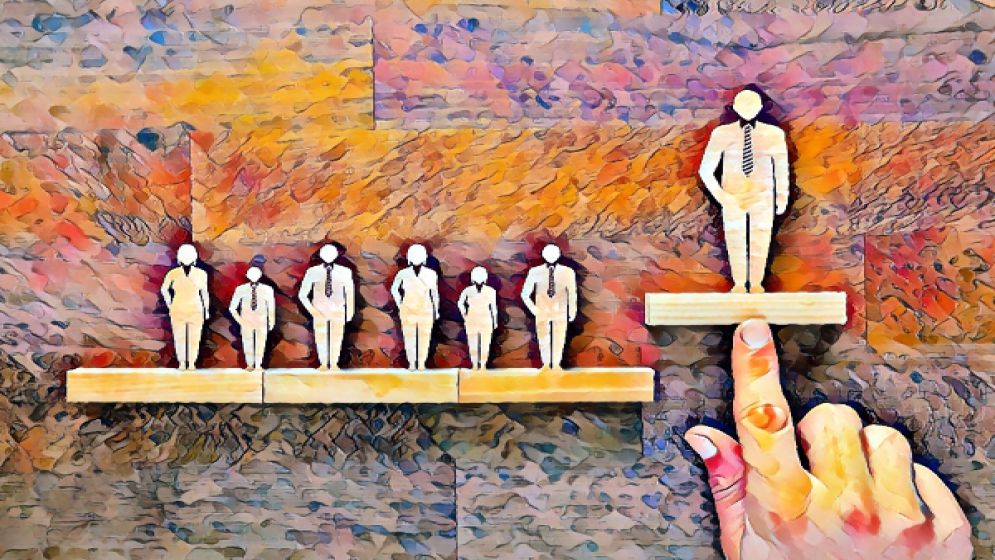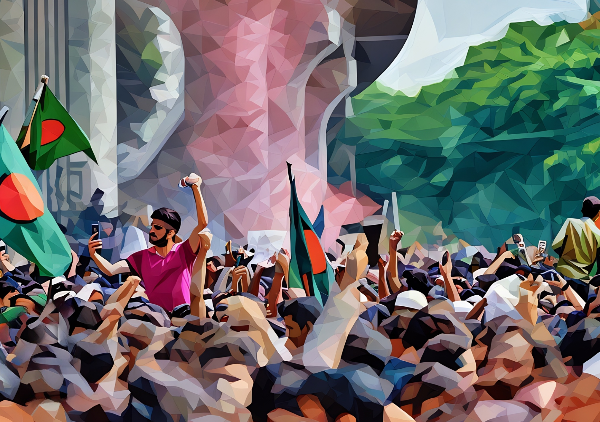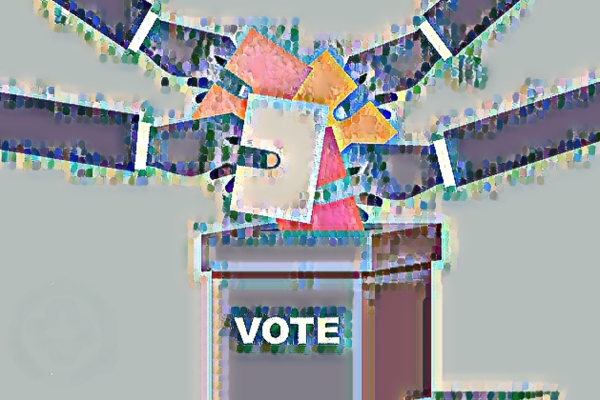Are there any real prospects for the students-led new party to become a true political power?

Today (February 28), a new political party will be unveiled in Bangladesh, led by the student leaders who spearheaded last July’s mass uprising.
While the announcement is sure to generate excitement and fanfare, a closer examination reveals that this party is unlikely to make any lasting political impact.
The timing of its formation is problematic, the organizational structure is underdeveloped, and most critically, the party lacks the key ingredients that have historically driven political success in Bangladesh: a charismatic leader and dynastic appeal.
Without these essential elements, this new political experiment is poised to become just another fleeting attempt at change—one more footnote in the country’s long history of political upheaval.
One of the most pressing flaws of this new party is its poor timing. Had it been founded immediately after the July uprising, it could have harnessed the momentum of that movement.
Revolutions and mass protests are fueled by emotion, and the longer the gap between an uprising and any political action, the harder it is to convert that energy into tangible success.
The fervor of last year’s protesters may have been strong in the immediate aftermath, but much of that intensity has already faded with time.
Additionally, the party’s delayed emergence makes its task even harder. If it had been born during a period of political turmoil—say, after the fall of an entrenched regime—it could have positioned itself as the legitimate successor to a revolutionary cause.
But by entering the fray in a moment of relative political stability, it risks being viewed as just another opposition faction trying to carve out space in a crowded, competitive arena.
Yet perhaps the most significant obstacle to the party’s success is its lack of a magnetic, charismatic leader who commands the loyalty of the masses.
In Bangladesh, as in many developing nations, political movements are defined by personalities, not just policies or ideologies.
The most successful parties in the country’s history have been built around cult figures: Ziaur Rahman, Sheikh Mujibur Rahman, and Hussain Muhammad Ershad.
These leaders did not just lead political organizations—they became the embodiment of those organizations.
Without a similarly strong and unifying figure at the helm, this new party will struggle to build the kind of widespread, deep-rooted support necessary to thrive.

Leaders, not
parties
In Bangladesh, political allegiance is rooted not in ideologies, but in personalities. The common people support leaders, not parties.
Ziaur Rahman is revered as the nation’s savior, Sheikh Mujibur Rahman was worshipped like a messianic figure by his supporters, Hussain Muhammad Ershad was seen as a benevolent autocrat, and Khaleda Zia was regarded as the motherly guardian of nationalism.
These leaders built their parties not on ideological convictions, but on personal loyalty.
The new political party debuting in Bangladesh faces a stark contrast to this tradition.
Led by a group of student leaders, it may have been influential within a specific movement, but it lacks the kind of larger-than-life figures required to sustain a political party in the country.
There is no leader among them who can command the kind of unquestioning devotion of the masses that Bangladesh’s political landscape demands.
A key obstacle for this new party is the deeply ingrained culture of dynastic politics. In Bangladesh, family legacies dominate the political sphere.
To break into this entrenched system, a new party must challenge the electorate’s psychological conditioning, which equates political legitimacy with familial continuity.
Without the weight of a prominent family name behind it, the new party will struggle to convince voters that it has the staying power to compete with the established dynasties.
Bangladeshis are not accustomed to supporting leaderless collectives or faceless committees. They seek a household name—a figurehead who symbolizes continuity and stability.
Furthermore, building grassroots support is crucial for any political movement to succeed. The Awami League, BNP, and Jamaat-e-Islami have deeply rooted networks across the country, extending into villages and union councils.
This new party, however, lacks such an expansive grassroots infrastructure. While it may garner some support from groups like the National Citizens’ Committee and the Anti-Discrimination Student Movement, these organizations do not have the national reach required to make a significant impact in elections.
But grassroots support is not just about numbers—it is about loyalty and organizational infrastructure.
Bangladesh's political parties rely on extensive patronage networks to mobilize voters. Without substantial financial backing and a network of local leaders, this new party will find it difficult to compete with the major parties, which have decades of experience in patronage politics.
Even if the party can attract initial support, sustaining that backing will be an uphill battle without the resources necessary to maintain local offices, run campaigns, and counter the influence of the more established political machines.

New voters
equation
One factor that could have worked in favor of the newly formed political party in Bangladesh is the emergence of nearly four crore new voters over the past 16 years, a period marked by multiple voterless elections under the Awami League.
These young voters, disillusioned by the lack of democratic processes, might have been expected to form a potential base for an alternative political force. However, the reality is far more complex.
These new voters are scattered across the country, making it extremely difficult for any single party—especially one without established grassroots networks—to mobilize them effectively.
While they may collectively yearn for change, their geographical dispersion means they do not form a concentrated voting bloc capable of making a significant electoral impact.
Without a centralized structure to harness their collective power, their votes will likely remain fragmented, reducing their overall influence in the political process.
The new party may gain pockets of support among the youth, but without a mechanism to convert that support into a strategic advantage, it will struggle to make a meaningful difference.
The challenges facing new political parties in Bangladesh are not unique. Across Africa, Asia, and Latin America, similar parties have emerged with great promise, only to fade due to a lack of organizational structure, funding, or a charismatic leader.
In India, the Aam Aadmi Party (AAP) initially gained traction in Delhi but struggled to expand beyond the region.
In Pakistan, numerous anti-establishment parties have been formed but have been overshadowed by the military-backed Pakistan Muslim League (PML) and the dynastic Pakistan Peoples Party (PPP).
Likewise, in Kenya and Nigeria, new parties often emerge from disaffected political figures but rarely survive beyond a few election cycles.
The lesson from these examples is clear: new political parties must either emerge from within an existing power structure or be led by a highly charismatic leader capable of breaking the grip of the old elite.
While the announcement of a new party in Bangladesh may excite certain segments of the population, a careful analysis suggests that its chances of success are slim.
To truly make an impact, this party must either identify a leader with mass appeal or embed itself deeply within the country’s grassroots structures.
Without these elements, it risks becoming just another short-lived experiment in Bangladesh’s turbulent political history.
—
H. M. Nazmul Alam is an Academic, Journalist, and Political Analyst. He can be reached at [email protected]

